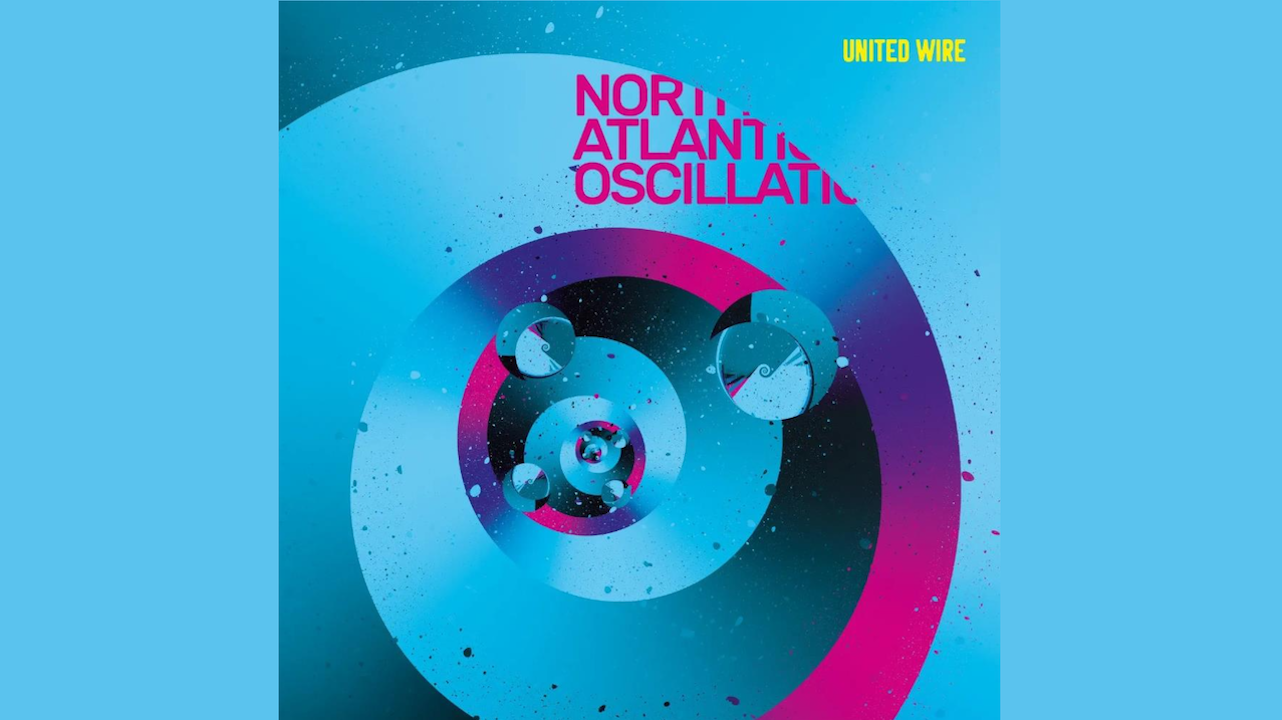North Atlantic Oscillation have been steadily finessing their combination of post-Kid A nu-prog and modern electronica since their 2010 debut, Grappling Hooks – but here on their fifth album, it sounds like a genuine man-machine singularity has been achieved. It’s sure to become a cliché – if it isn’t already – but there’s definitely a sense of some kind of AI-enhanced mind-meld having taken place during the creation of United Wire. Even the title seems to allude to an active collaboration with the complex networks that our social interactions are increasingly encased inside.
However, that’s not for a moment to take anything away from the flesh-and-blood project or suggest that they’ve got ChatGPT to write the album for them. It’s more that there’s a next-generation integration here between the human and electronic elements, so that both flow seamlessly together to create a hyperreal sonic continuum. Clock opens with what could be the tapping of fibre optic cables and Sam Healy’s unexpectedly mellow voice singing, ‘Everything’s winding down’, before bold mechanical beats and a skirling synth line threaten to spin away into discordancy. The glitching rhythm and down-tuned vocal of Corridor suggest both eerie calm and mysterious activity, rather like being in a digital termite mound.
If this sounds a little alienating, suffice to say the progressive imperative is still very much in evidence. The electro melancholia of Glyph folds back into a section driven by a chiming guitar motif, then some noisy rocking out. Lead track Matryoshka is one of the album’s highlights, processed drums and distorted vox suddenly giving way to an oasis of edgy tranquillity, where cooing vocals and limpid piano create some serious Pyramid Song vibes – pitch black bass then pulls us heavenwards, into the TV sky.
Torch is the most straight-forwardly dynamic track, surfing waves of pulsating energy, while its protagonist morphs into the virtual realm: ‘I’m a body in the beam/Star, camera/I’m the glass, not the screen,’ sings Healy. Cage begins with a section of ecstatic electronica before pausing for a moment of reflection, Healy’s drifting, diaphanous vocals resembling the last transmissions of humanity before being file transferred to the stars. The horn-like synths are all that’s left to serenade an empty planet.
Finally, Powder is futuristic yacht-rock adrift in the digital ether, a sense of benign resignation in the face of the inevitable – as Healy sings, ‘I’ll explain what happened to us/I could be wrong, but I think it was planned.’ United Wire is an album for a world where reality is being reconfigured.

